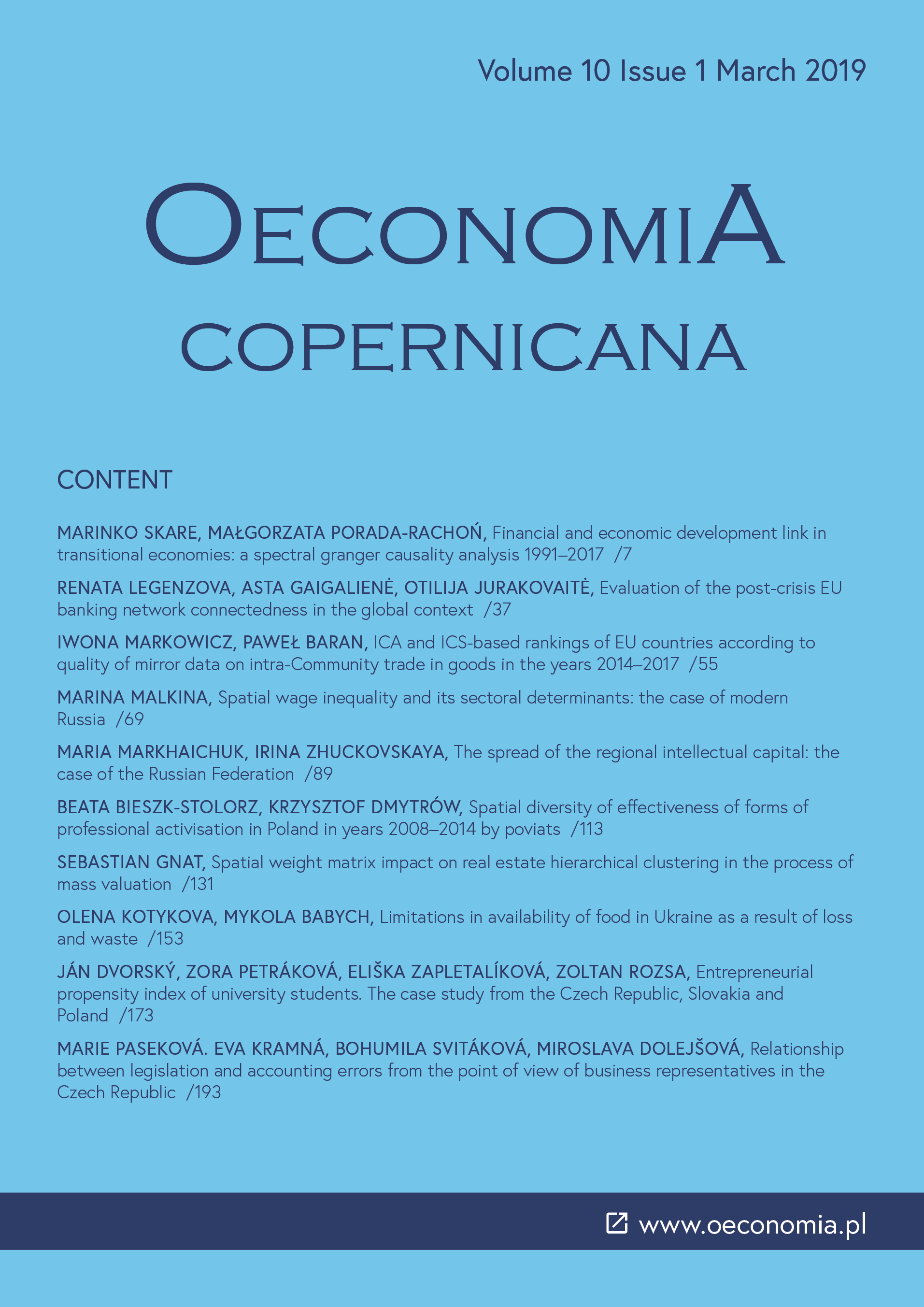Spatial wage inequality and its sectoral determinants: the case of modern Russia
Spatial wage inequality and its sectoral determinants: the case of modern Russia
Author(s): Rogneda I. VasilyevaSubject(s): National Economy, Socio-Economic Research
Published by: Instytut Badań Gospodarczych
Keywords: regional average wage; spatial inequality; sectoral structure of economy; decomposition of inequality; convergence
Summary/Abstract: Research background: We assume that the dynamics of spatial wage inequality can be caused by both shifts in the sectoral structures of regional economies and changes in inter-sectoral and intra-sectoral (inter-regional) wage inequality. Purpose of the article: The paper is aimed at analysis of the sectoral factors influenced the spatial wage inequality in Russia in 2005-2014. Methods: The employment-weighted Gini coefficient was applied for assessment of spatial wage inequality; the modified Lerman-Yitzhaki technique allowed to decompose it by main economic activities and their determinants; the mixed methods of factor analysis was used to evaluate the contribution of sectoral determinants to regional wage convergence in Russia. Findings & Value added: We found a weak and inconsistent convergence of Russian regions in average wage over the period under review and explained it by the opposing forces in the main economic activities. The spatial convergence was basically created by mining, manufacturing, agriculture, construction, and transport and communications activities, while wholesale and retail trade, financial intermediation and real estate operations counteracted it. The convergence was mainly facilitated by a reduction in inter-sectoral differences in wages as well as by rapprochement of the employment structures in some economic activities of Russian regions. In the meanwhile, the migration of labor force from lower wage to higher wage activities negatively affected the smoothing regional differences. Ultimately, intra-sectoral wage inequality and wages correlation in various activities rather preserved inequality. The results are applicable in the management of spatial inequality both at the regional and national levels.
Journal: Oeconomia Copernicana
- Issue Year: 10/2019
- Issue No: 1
- Page Range: 69-87
- Page Count: 19
- Language: English

